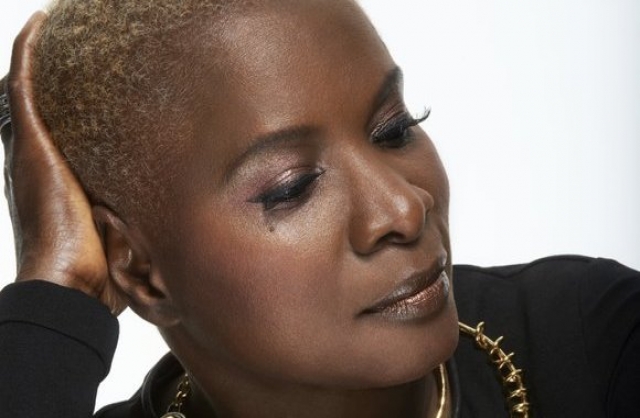 The following article is written by Angélique Kidjo (pictured above), a Grammy Award–winning singer-songwriter and activist from Benin. (Photo: Pierre Marie Zimmerman via Amsterdam News)
The following article is written by Angélique Kidjo (pictured above), a Grammy Award–winning singer-songwriter and activist from Benin. (Photo: Pierre Marie Zimmerman via Amsterdam News)
The New York Times | OP-ED
By ANGELIQUE KIDJO
A few days ago, I posted a note on Facebook about my scheduled concert next week at Carnegie Hall honoring the late South African singer Miriam Makeba, who was known widely as Mama Africa. I was saddened to see the following comments appear: “Instead of mama africa it should be mama ebola” and “I wonder if she is bringing aby Ebloa [sic] with her?”
Overnight it seems that all the naïve and evil preconceptions about Africa have surfaced again. Ebola has brought back the fears and fantasies of Africa as the Heart of Darkness and the fearmongering about the disease threatens to reverse decades of progress for Africa’s image.
I’ll always remember the night Mama Africa entered my life. I was about 9 years old and there was an old turntable standing in the corner of the dining room of our house in Benin.
I was browsing through my brother’s vinyl-record collection and discovered a Makeba album called “Pata Pata.” On the cover, Miriam’s shoulders were bare; she had a gentle but determined smile. I carefully dropped the needle and an irresistible groove literally jumped out at me. I couldn’t help dancing.
Ms. Makeba became my role model. Every night I dreamed that one day I would be like her, travel the world, meet powerful people and address the United Nations like she did in 1963, when she denounced the South African apartheid regime in front of the whole world.
That an African person — a woman — could accomplish all this and could stand up for her people even though her life had been defined by hardship was amazing to me. She was exiled twice: first from South Africa by the racist apartheid regime, and then from America while she was married to Stokely Carmichael, the Black Panther activist.
Ms. Makeba managed to transform, in the eyes of the world, the image of the African woman. She gave us a human face — a strong face that went beyond all the clichés carried by movies and TV shows. As I kept singing her songs throughout my career, I always felt that my mission was to keep her legacy alive — especially today.
Read more at NYT »
—
Related:
5,000 Ebola Health Care Workers Needed In West Africa: WHO
Ethiopia to Deploy 210 Health Workers in Ebola-Hit West Africa
In first case, Doctor in New York City is Diagnosed With Ebola
Cuba’s Impressive Role on Ebola
Ebola: Africa’s Image Takes a Hit
U.S. Embassy: No Confirmed or Suspected Cases of Ebola in Ethiopia
Ethiopia Launches Ebola Testing Lab to Combat Epidemic
Join the conversation on Twitter and Facebook.

























